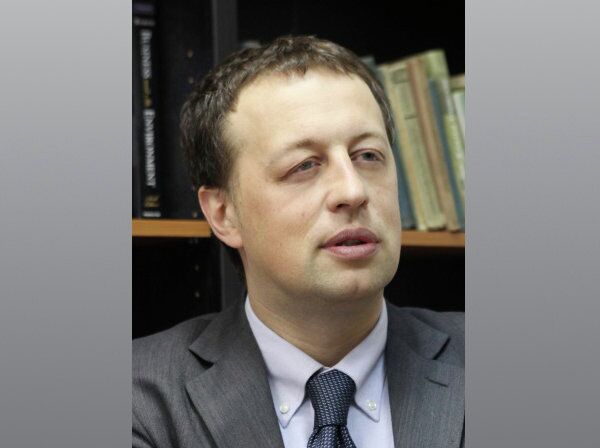MOSCOW, August 2 (RIA Novosti) – Prominent economist Konstantin Sonin, who left one of Russia’s top universities two months after its influential rector, Sergei Guriev, fled the country fearing he could be jailed, was appointed to a senior position Friday at Moscow’s Higher School of Economics.
Sonin, 41, was made vice rector at the university effective from August 1, the Higher School of Economics said in a statement published on their website.
The economist said earlier this week he had decided to leave the New Economic School (NES), where he had worked for 12 years, after a conflict with managers, who are currently looking for a permanent replacement for Guriev. He denied there were any "political" reasons behind his decision.
The interim rector at NES, Stanislav Anatolev, said Thursday that the timing of Sonin’s departure was unfortunate. “We were prepared for the departure of Konstantin Sonin, he talked directly about it,” said Anatolev. “But he did not choose, in our view, the most appropriate moment for this step.”
NES, a private graduate economics university, is governed by a board of directors including Russian billionaire Peter Aven, the chief economist of the European Bank for Reconstruction and Development Erik Berglof, and Russian Deputy Prime Minister Arkady Dvorkovich.
Guriev, who resigned from NES in May, was a close colleague of Sonin’s, and the two prominent academics shared many of the same research interests. Sonin was widely believed to be one of frontrunners to succeed Guriev later this year.
Guriev decided to flee to Paris after being questioning by investigators looking into a case against Yukos, the now-defunct oil company founded by former billionaire Mikhail Khodorkovsky. Supporters insist that Khodorkovsky, who has now been in prison for almost a decade, was the victim of political persecution, but the Russian government insists his trials were legally justified.
In 2011, Guriev contributed an expert statement to a Presidential Civil Society and Human Rights Council report on the legality of the second Yukos case, maintaining Khodorkovsky was not guilty.


